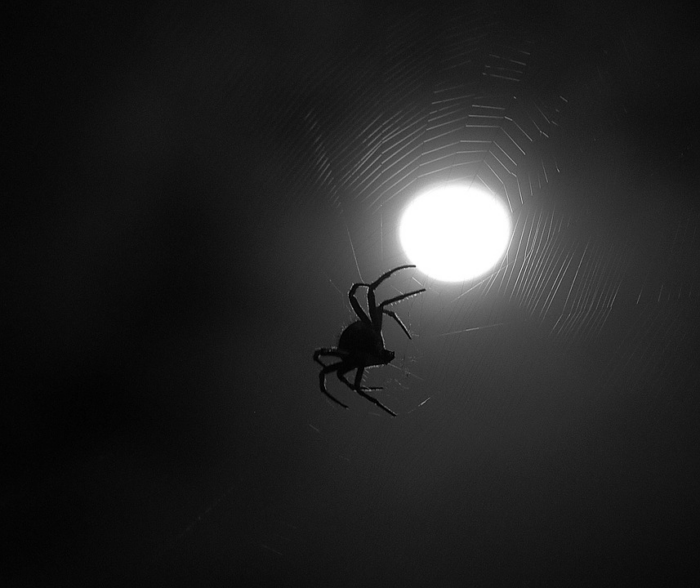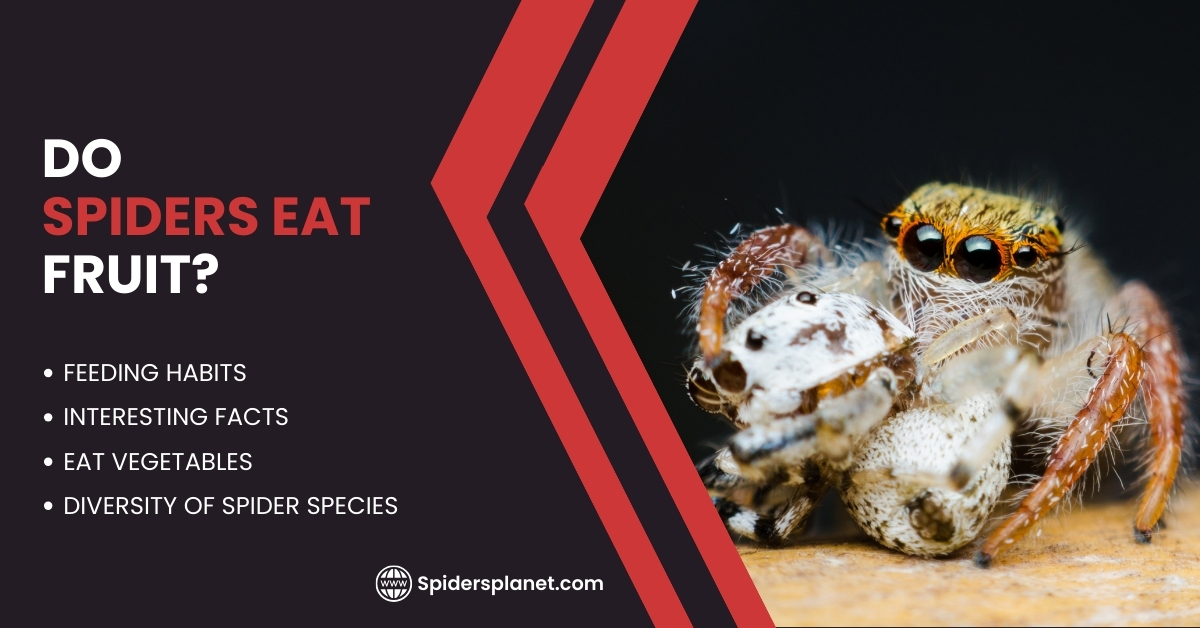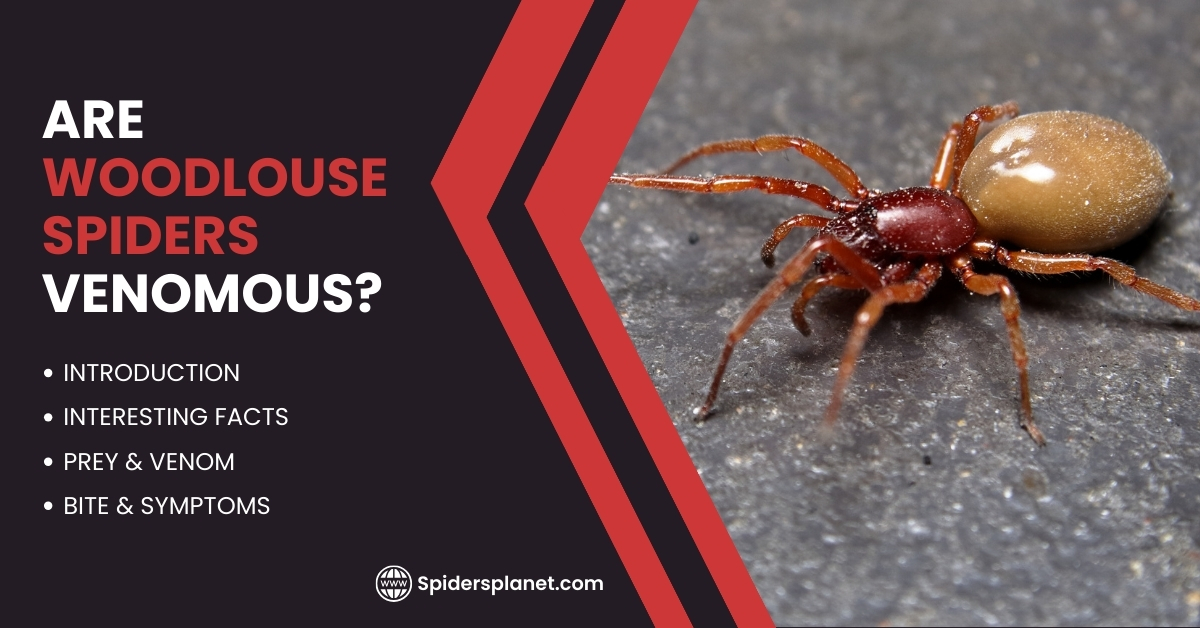When the sun sets, many creatures come out to play, including spiders, and for many people, the mere sight of a spider is enough to send them running for the hills.
Nocturnal spiders can be found all over the world, and they often go unnoticed. However, there are some real dangers that come with encountering a spider in the dark.
For starters, some species are venomous, and their bites can be deadly which only adds to their fearsome reputation.
So, in this blog post, we’ll explore why spiders come out at night, what types of spiders are nocturnal, how to identify them, and how to control their populations.
We’ll also discuss what you should do if you ever find yourself in close proximity with one of these spiders at the night!

Why Are Spiders Most Active At Night?
Spiders have evolved to become nocturnal creatures, for a variety of reasons!
- Spider’s Prey Are Also Nocturnal: For one thing, most of the spiders’ prey are also nocturnal, so it makes sense for them to be out hunting when their food is most active.
- They Can Avoid Predators: Being active at night helps spiders avoid predators like birds which are most active during the day.
- They Are Sensitive To Daylight: Some spiders that have more than two eyes, like the wolf spider, become more sensitive to light exposure and as a result, prefer to come out at night.
- To Avoid The Heat: Spiders are cold-blooded creatures, which means that they rely on their environment to regulate their body temperature. During the day, when it is hot outside, spiders will seek shelter in cool places like caves or under rocks.
So, as you can see, there are a few reasons why spiders come out at night! And if you’re looking to catch a spider for study or observation, nighttime is probably your best bet. Just be careful not to disturb their natural habitat too much.
Related Articles:
What Time Of Night Are Spiders Most Active?
So spiders are notorious for being active at night, but is there a particular time of night when they are most likely to be out and about? Yes, however, this varies depending on the species of spider.
In fact, there was a study, by Professor Adam Hart, an entomologist at the University of Gloucestershire, that found that spiders were most active at 7:35 PM. They also found that the spider’s activity peaked between 6 AM and 8 AM.
Are All Spiders Nocturnal?
Even though spiders are most active at night, there are still times when you might see them during the day. Usually, it will be in the early hours of the morning, or in the evening. These are called diurnal spiders!
This means they are most active during the day. One example of a diurnal spider is the common garden spider that will often be seen spinning its webs in the early morning hours.
These spiders will feed off things like, flies wasps, insects anything that will fly into their web!
Even the results of the study “mentioned above” also suggest that not all spiders are strictly nocturnal and that they may be more flexible in their schedules than previously thought.
Types Of Spiders That Are Nocturnal
Now that we know a bit more about the nocturnal habits of spiders, you might be wondering which types of spiders are most likely to come out at night. While there are over 50,000 different species of spiders, not all of them are nocturnal!
Types Of Spiders That Are Nocturnal:
- Orb-Weaving Spiders
- House Spiders
- Black Widows
- Brown Recluses
- Wolf Spiders
- Tarantulas
Of course, this is just a small sampling of the many different types of spiders that are active at night. So, if you’re ever curious to see what kinds of spiders are out and about in your area, be sure to keep an eye out at night!
Do They See Better At Night?
Spiders are known to have more than two eyes, so naturally, you would think they have incredible eyesight, but this is not true!
In fact, research has shown that some spiders do not have very good eyesight. Instead, they rely on touch and vibrations to locate their prey.
However, certain types of spiders, like the mighty wolf spider that has 8 eyes, rely on good vision for capturing their prey and for recognizing mates and of course their rivals.
If you want to know how to spot wolf spiders at night using just a phone, watch this video below!
Do Spiders Hunt Better At Night?
Now that we know spiders are most active at night, it stands to reason that they must do most of their hunting during these hours as well, right?
Yes! In fact, nocturnal spiders have a lot of advantages regarding hunting at night. For one, there are more insects active at night, which means there is a greater chance of finding food.
Additionally, the lack of light makes it easier for the spiders to stalk and sneak up on their prey.
Related Article:
Where Do They Usually Go At Night?
It’s unclear where spiders usually go at night, however, it’s speculated that some spiders will build their webs or funnel and then sit and wait.
Yet, spiders that hunt their prey, will usually stay in the same area and usually don’t drift too far away from their nesting ground.
Will Spiders Go Near Humans At Night?
No one likes to find a spider in their home at night, and if you do, don’t panic! Most spiders are not aggressive and will run off at the mere sight of us, humans.
Unless you are actively trying to disturb a spider or its web, the chances of being bitten are relatively low. Of course, this is little comfort to those who have a serious phobia of these creatures!
If finding a spider in your home at night is enough to send you into a panic, it’s best to contact a friend or family member to take care of it.
Alternatively, if your worried that the spider could be venomous, you should call a professional pest control company straight away!
They will be able to identify the type of spider in your home and determine whether or not it poses a threat to you and your family.
Important: Depending on where you live in the world, if you see or come in contact with a black window , be cautious as these spiders can be very venomous!
Where Do Nocturnal Spiders Hide During the Day?
During the day, spiders usually hide in dark places where they can’t be seen. This might be in a loft, in a cupboard, or behind a piece of furniture.
Spiders can also squeeze into very small spaces, so you might find them in cracks in the walls or in the corner of a room.
Ways To Control Nocturnal Spider Populations
Controlling the population of nocturnal spiders can be a difficult task, but it is one that is important for keeping your home and yard safe. There are several steps you can take to reduce their numbers and keep them from getting into your home.
Remove Any Debris Or Wood Piles
The first step is to remove any debris or wood piles from your property, as these provide a great hiding spot for spiders. Additionally, it’s important to seal up any cracks or openings that may provide access to the home or yard.
This includes repairing broken windows or screens and checking around door frames for gaps.
Use Insecticides
Insecticides can also be used to reduce spider populations, though it should be done with caution as certain insecticides may harm other beneficial insects in the environment.
When using insecticides, follow directions closely and use baits specifically designed for spiders on outdoor plants and surfaces where they may hide during the day.
Install Screens On Windows And Doors
Installing screens on windows and doors will also help keep spiders out of the home while still allowing fresh air in. Mosquito netting can also be added near windows and doors if needed.
By following these simple steps you can help keep nocturnal spider populations under control while still protecting your environment.
What To Do If You Come Across A Nocturnal Spider
No one likes to come across a spider in their home, especially if it’s a nocturnal one. If you do find a spider that appears to be nocturnal, there are some steps you can take in order to identify and remove it safely.
First things first, assessing the risk. If you come across a spider of any kind, it’s important to understand the potential danger posed by the spider. Most spiders are harmless, but some like tarantulas may have venom that can cause allergic reactions in humans.
It’s best to use caution and identify the species before attempting removal.
If you determine the spider is not poisonous or dangerous, then it’s time to remove it from your home. You should use gloves when handling a spider and make sure to keep them away from your face and other parts of your body that may be exposed.
It’s best practice to scoop up the spider using an inverted cup or container with an opening wide enough for you to slide over the top without smushing or trapping the spider inside.
Once contained, take the spider outdoors away from doors and windows so that they can find their way back into your house and release it! that’s it!
Conclusion
So, there you have it! We hope you found this article helpful and informative, and if you want to know more about spiders, feel free to check out more of our articles!
Related Article:



